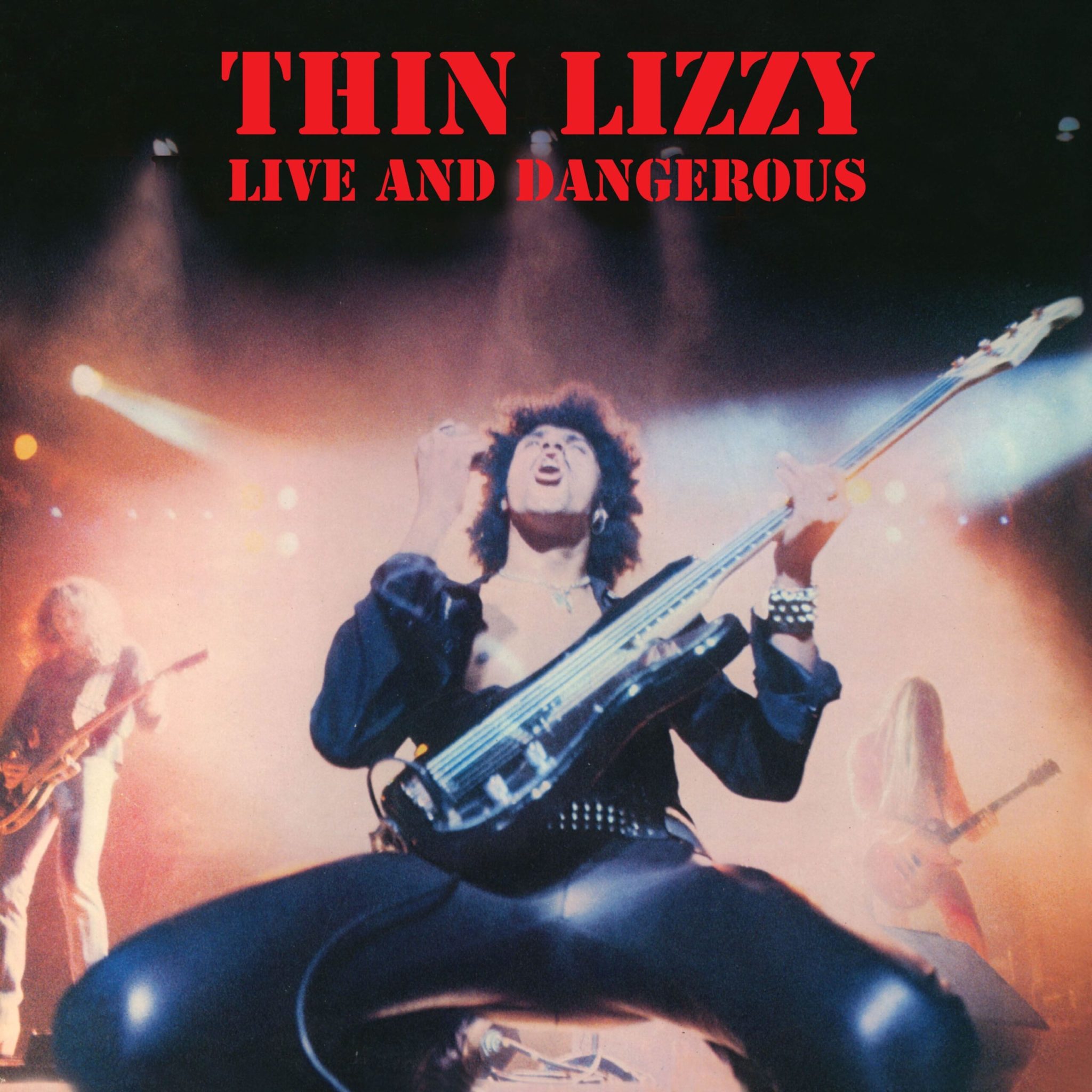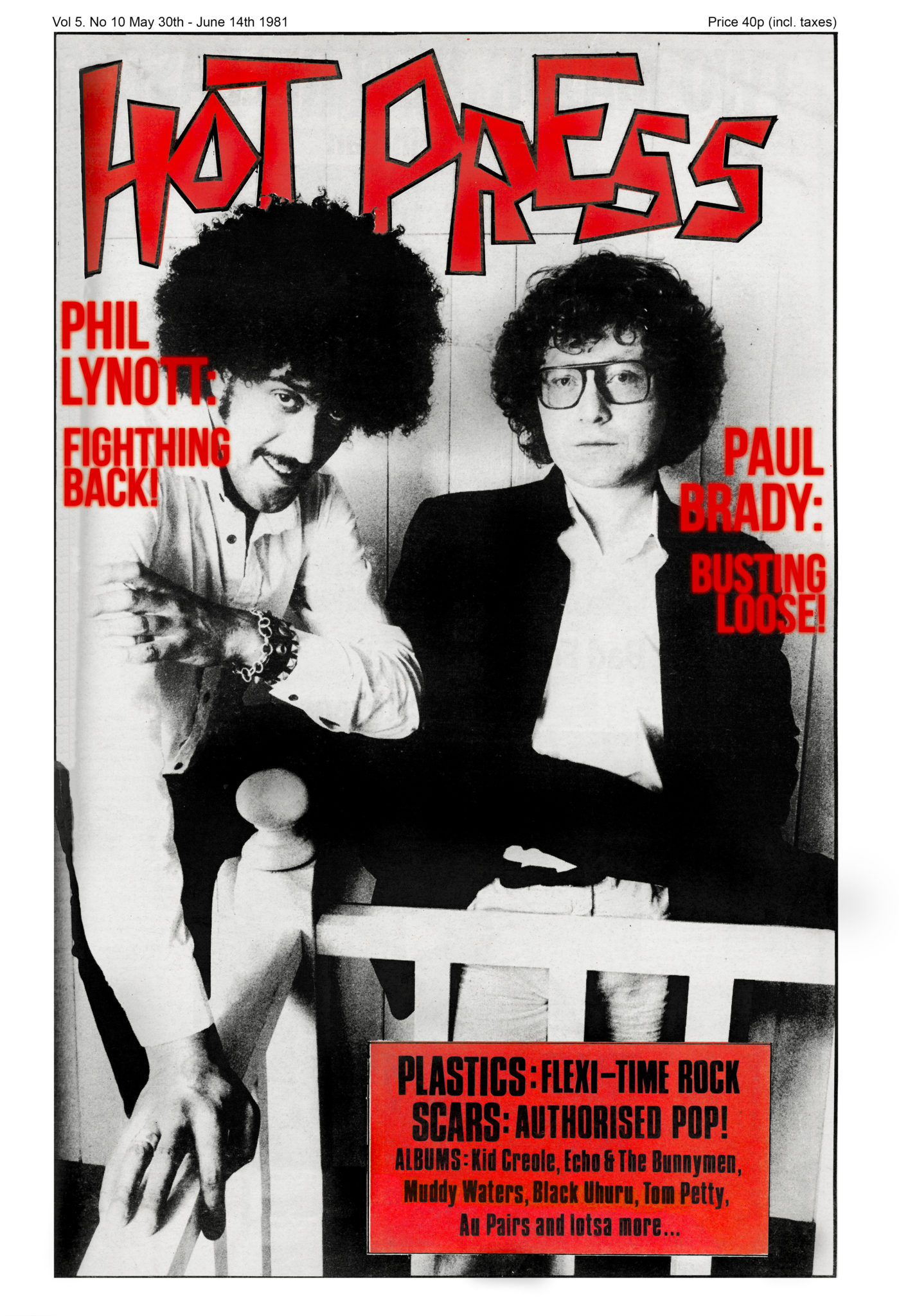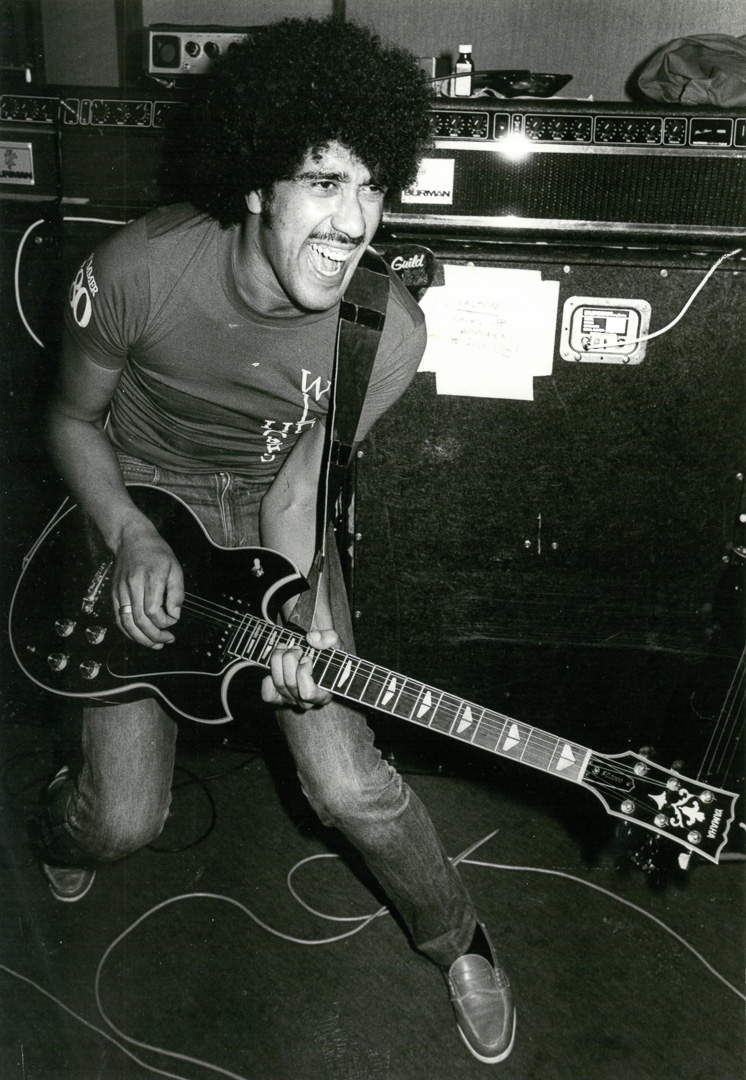- Music
- 20 Aug 24

To mark what would've been Philip Lynott's 75th birthday, we're revisiting Peter Murphy's reflections on the Irish music icon's phenomenal work and legacy. Also featuring contributions from Bob Geldof, Glen Hansard and The Cranberries' Noel Hogan.
Originally published in Hot Press in 1999 – to mark what would've been Philip Lynott's 50th birthday:
Years after his passing, the abiding image of Phil Lynott is still the cover shot from Thin Lizzy's classic Live And Dangerous album: The Rocker on his leather-jeaned knees, bass cradled in one hand, face contorted, the fist held aloft in a gesture of fuck-you exuberance.

But even that iconic shot masked a complex and wily artist. Here was a man whose work on classic albums like Jailbreak and Johnny The Fox at once abided by the traditional rules of hard rock guitar heroism, lyrical braggadocio and a fascination with Sci-Fi/Wild West/Celtic myth (reflected by Jim Fitzpatrick's intricate sleeve designs) yet suggested much more.
Thin Lizzy were always harder to pin down than their contemporaries (listen hard to the legendary dual Les Paul parts on 'Emerald' or 'Chinatown' and you'll hear echoes of Ó Riada and The Chieftains). For a start, they were one of the few old-guard '70s rock n roll combos with enough street cred to keep favour with audiences defecting to The Clash and The Ramones. When the punk terriers brought down the dinosaurs, Phil Lynott was to be found consorting not with Rod Stewart and Robert Plant, but Steve Jones, Phil Chevron and Johnny Thunders.
Advertisement
One minute, he'd be revelling in heavy rock's lady-killing trappings on tunes like 'Killer On The Loose', the next penning tender ballads like 'Sarah' and 'Cathleen' for his daughters. These polarities constantly fuelled the work, giving him the freedom to pursue trajectories as apparently contradictory as the boyish romanticism of 'Cowboy Song', the wry jazz of 'Fats' or the YMO-style electronica of 'Yellow Pearl'.

Even in the twilight of his career, Phil was still stretching himself, trying out folk forms with Terry Woods on a cover of 'Tennessee Stud' or the lovely melancholia of 'A Tribute To Sandy Denny' with Clann Eadair.
Always restless (check out the array of musical hats he tried on in Solo In Soho alone), one wonders what Lynott would've made of current musical climates. Certainly, Phil the experimenter and bass player would've had a ball with drum n bass; Phil the Black Paddy bard could've been the first to translate the rap vernacular into an Irish argot; Phil the master songwriter might've applauded Blur, Pulp and Radiohead; Phil the sonic landscaper would have marvelled at Mercury Rev and Air.
However, this is all hypothetical the fact remains that he's not here, and more's the pity. But consider this: what other songwriter can claim to have had tunes covered by acts as disparate as Happy Mondays and Metallica in 1999?

NOEL HOGAN (THE CRANBERRIES)
On 'Whiskey In The Jar':
Advertisement
"I first heard a Thin Lizzy track when I was in a mate's house and we were going through his elder brother's record collection. We played 'Whiskey In The Jar' over and over again on our air guitars – we thought we were really cool! I think I was about 11 at the time. I still know the chords, we often break into it when we're rehearsing or fooling around in the studio."
GLEN HANSARD
On 'Things Ain’t Working Out Down at the Farm':
"I had to learn it from top to bottom, and it kinda got me in touch with the song and with ol' Philo on a much closer level. It was a great example of their diversity – it really reminds me of The Band. And as well, Frank (Murray, former Thin Lizzy road manager and ex-Pogues/Frames manager) used to go on about it being about him.
"Graham, our old bass player, was Brian Downey's son, so it was weird for him learning it. Myself and Dave (Odlum) learned the twin lead guitar parts for it, which was so much fun to play. At the time it was such an unusual sound. Being in Dublin, there are so many people you meet that have Philo stories. I actually have a book of poetry by him at home, and it's amazing."
BOB GELDOF
On 'Cowboy Song':
Advertisement
"I think it's pretty classic Lizzy: it's got the melodic element, the rock element, the classic twin-harmony guitar thing, and that great chorus, 'Roll me over/And turn me around'. But also then the view of himself as the Clontarf Cowboy or whatever the fuck it is – all that romanticism.
"I didn't sing it (at Self Aid in 1986) for that reason – I sang it 'cos I just thought it was a lovely tune, y'know: 'The starry night/The campfire light'. I just like that whole ending, it's so imminent in my mind, the last pay-off line: 'The cowboy's life/Is the life for me'. And maybe more than anything on that day, it reminded me of him. There was a certain pathos with the slow opening, the panoramic view."










